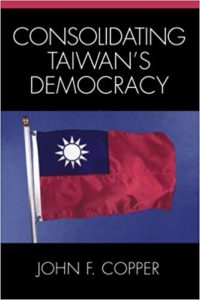One big worry for the Taiwanese government is the increasingly authoritarian and opaque nature of Beijing politics, which makes it harder to assess what drives Chinese leader Xi Jinping’s decisions and whether he might become more willing to risk war, The FT’s Kathrin Hille and Demetri Sevastopulo report.
Analysts caution that there is precedent of authoritarian leaders ignoring all deterrence signals, The FT adds.
 “History suggests that when a political leadership considers starting a war, those kinds of considerations fade into the background. At that point a major power becomes almost undeterrable,” says Michael Mazarr, an expert on East Asian security at Rand.
“History suggests that when a political leadership considers starting a war, those kinds of considerations fade into the background. At that point a major power becomes almost undeterrable,” says Michael Mazarr, an expert on East Asian security at Rand.
Three basic policy concepts that guided the West during the Cold War remain particularly relevant today to defending Taiwan—the epicenter of the U.S.-China confrontation, Carl Gershman, founding president of the National Endowment for Democracy (NED), writes for the Journal of Democracy:
- The first is the concept of containment that the United States carried out through a comprehensive and vigilant policy of military deterrence designed to prevent Soviet expansion and keep the Cold War from becoming hot.
- The second is the concept of “mellowing,” which George Kennan described in his famous “X essay” in Foreign Affairs as the process by which the inherent flaws of the closed Soviet system would gradually erode the regime’s ability to maintain absolute control.
- The third is the battle of ideas, which is the political and ideological competition between democratic and totalitarian systems.
It is not the job of American officials to determine Taiwan’s future, adds Ryan Hass, a senior fellow and the Chen-Fu and Cecilia Yen Koo Chair in Taiwan Studies at the Brookings Institution. The people of Taiwan have voice to insist that Taiwan be respected as a vibrant democracy and key partner of the United States, and not merely as a pawn in a great power contest, he writes for the Taipei Times.
China’s bid to coerce Taiwan is “part of a broader global assault on democracy,” said Damon Wilson, NED President and CEO, who presented President Tsai Ing-wen with the NED’s Democracy Service Medal.
Taiwan would confront the destabilizing forces working against democracies while strengthening cooperation with democratic nations, President Tsai added (above) at an event marking the 20th anniversary of the Taiwan Foundation for Democracy.








